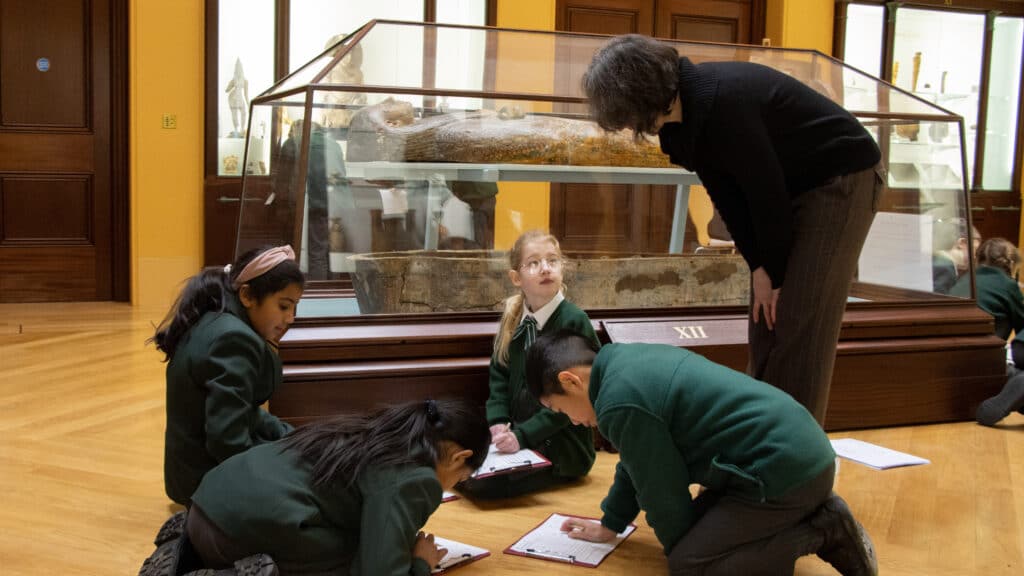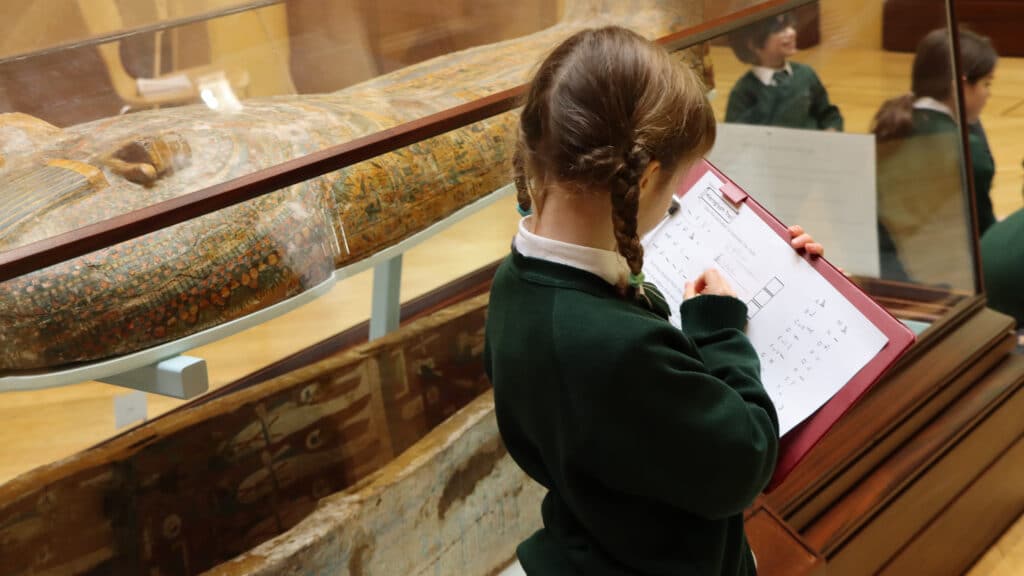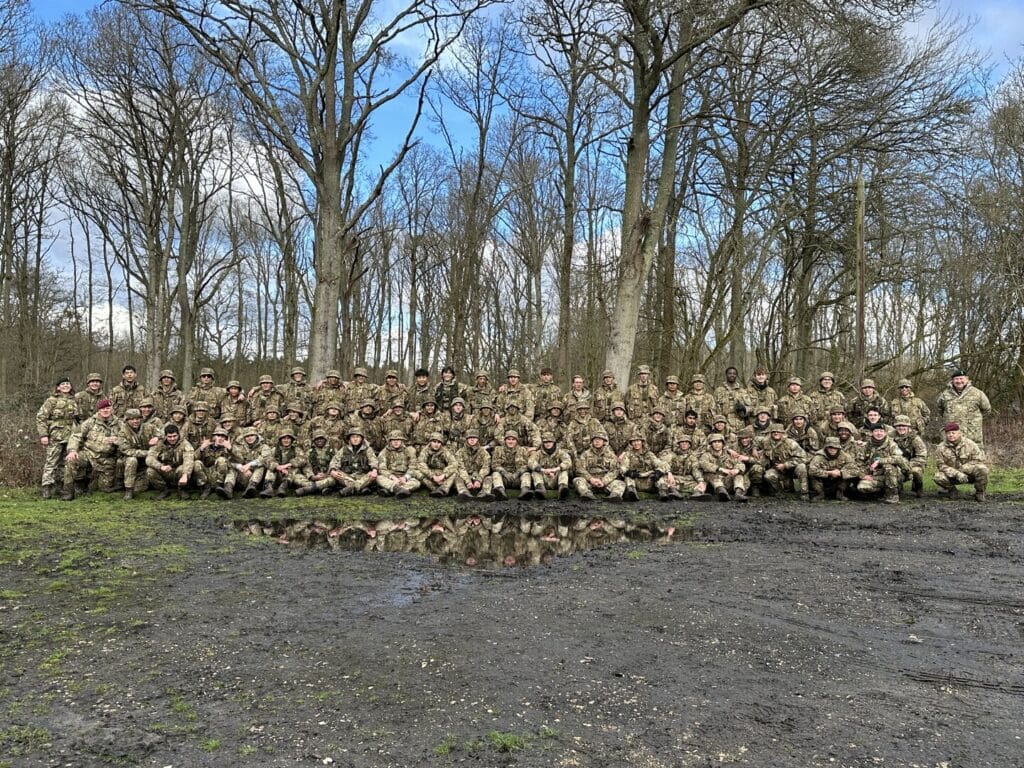I like stuff – I like learning about things, how they are made, their purpose and their history. It’s why I have always been drawn to museums – places devoted to stuff! – and why I’ve worked in them for over 14 years. Museums as institutions perform many roles: they collect, preserve, educate and inspire. As the Collections Education Officer at Eton College, I have three different museums at my fingertips to do that educating and inspiring.
Why take pupils to museums?
There is something inherently magical about seeing what you’ve been learning about in class suddenly in front of you for real. Listening to an expert outside the classroom reinforces to pupils that their teachers are not just making this stuff up! Sometimes these trips are the first time a pupil has visited a museum. That visit demystifies the space; hopefully, pupils will use that knowledge and confidence to encounter more such spaces, having new experiences and broadening their horizons.
Museums and their collections are perfect for object-based learning, which puts the learner at the centre of the experience. Whether it’s an Ancient Egyptian coffin or a fossil, that object can tell you something. Doing rather than being told improves understanding and imbeds the information more firmly in our long-term memory. There is also more to appeal to different learning styles – particularly visual and kinaesthetic learners.
Free museum learning at Eton College
At Eton College Collections we not only offer museum-based adult-facilitated sessions, where we investigate various aspects of a National Curriculum topic through discussion and activities, but in the Lent Half (Spring Term) we get the boys involved as well. Working with the museum curator or myself, volunteers from our lower sixth create and deliver their own museum learning sessions to primary school pupils. It’s a learning experience for both the classes and the boys! All these sessions are free. Our museums could be said to be bijou – as the landlord described my first London flat – but they are just the right size for one class and don’t open to the public until the weekend, so the class has the space all to themselves. If schools can’t come to us, we also offer Zoom versions of many of our sessions – it’s not the same, but at least pupils still have the chance to talk to someone else and see some of our collection.


Eton College has long been seen as a place of privilege. To be able to learn through our Collections is truly a privilege, and one that we are doing our best to share with people outside the College. I’m biased – I want everyone to visit our museums in person or book a Zoom session (can I just say again that they’re free?). But it’s not always easy to arrange trips, financially or logistically. There might not be enough money to cover the coach, or time to travel, or staff to meet the required student-teacher ratio. How can teachers work around all the difficulties to give their pupils the benefits that such trips provide? And what else can you do? How else can your pupils experience the value of “stuff”?
Why not shoes?
The first option is to see what your local museums have to offer. It doesn’t take a whole trip out or a massive handling collection to benefit. Contact a museum near you and see if they do outreach or have handling boxes or items you can borrow. What resources do they have online? Don’t be afraid to think laterally – object-based learning doesn’t only work for history or science. Using it for a discipline such as art and design may even make it easier to source objects, while also allowing ties with other subjects. Why not shoes, for example? Modern shoes are easy to source, and can be used to discuss materials and function vs fashion. Through that you could hit history, science, art and design, geography and literacy.
Shoes are something our pupils think they know – but maybe they will discover they didn’t know as much as they thought! And that lesson holds true for many things – both inside and outside the classroom, and in all walks of life.



